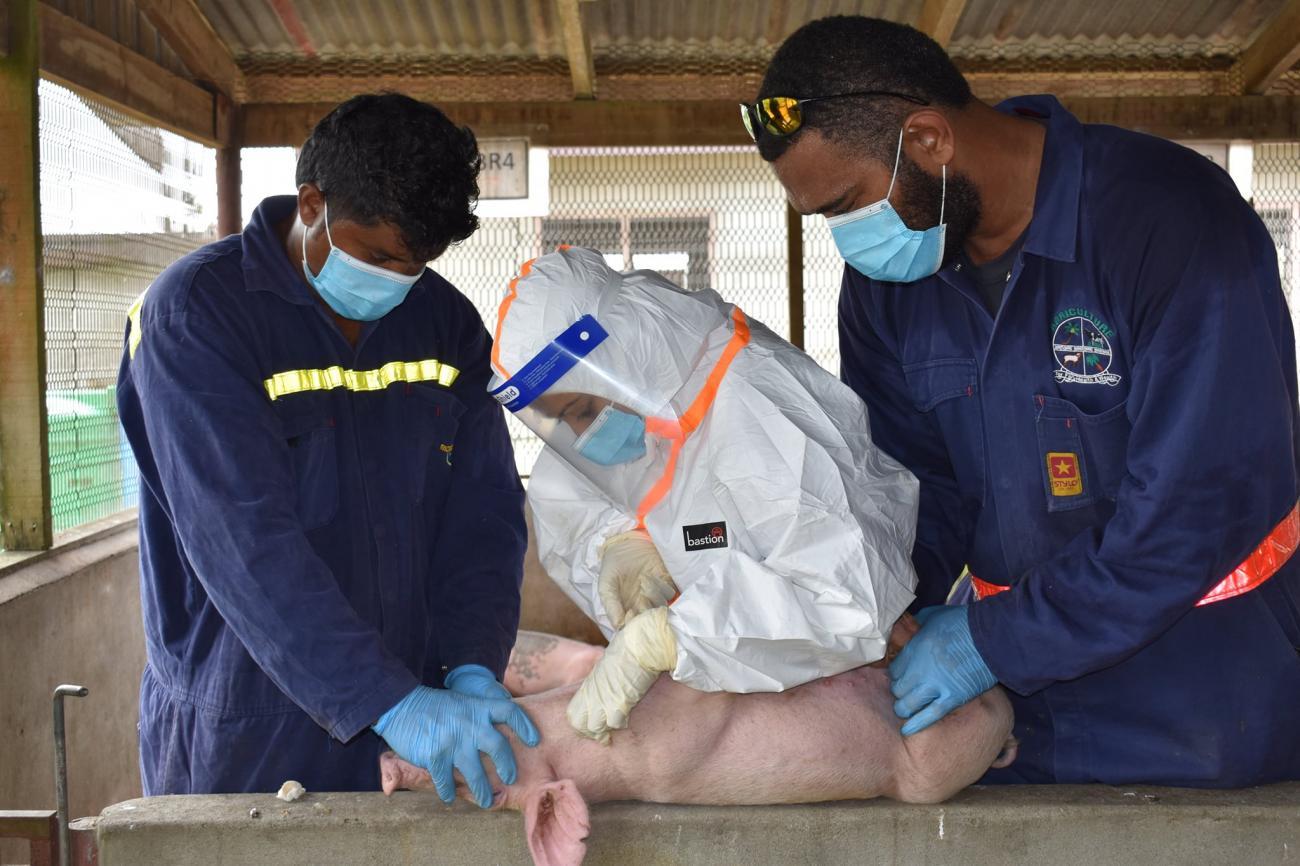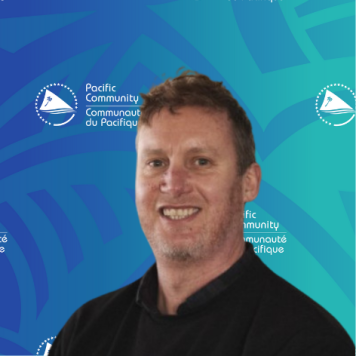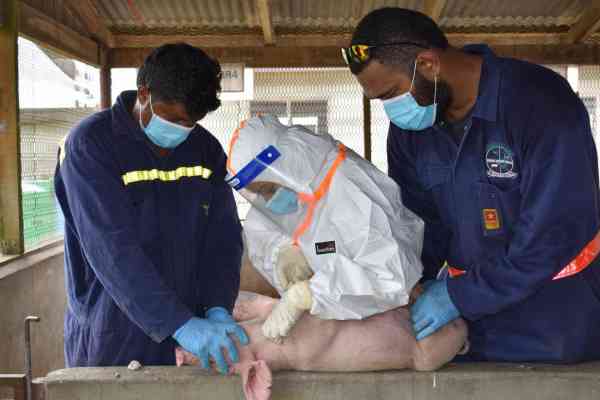Animal health officers are the eyes and ears of veterinarians in many Pacific countries where there are few or no veterinarians. They safeguard livestock health and provide essential regional animal disease surveillance. However, as they are not fully qualified veterinarians, they are only able to carry out a limited number of procedures.
Prior to the pandemic the shortage of qualified veterinarians in the Pacific has long been recognised as a major hindrance to the development of the livestock industry in the region.
“Many countries here in the Pacific face a lot of difficulties with animal health and husbandry as they lack the needed skills, and many animals turn out to be underproductive as they don’t have access to these services,” says Elenoa Salele, Animal Health and Production Officer with the Pacific Community (SPC) Land Resources Division.
To fill this skills and knowledge gap, the Pacific Community (SPC) developed a regional para-veterinary training for animal health care officers. The course was in high demand, but the impact of COVID-19 travel restrictions meant it was not able to be delivered in-country and face-to-face.
To continue to provide this vital training, SPC’s Land Resources Division digitized it, taking it online as an E-agriculture programme.
Piloted in Fiji and Vanuatu, the training was targeted at country Ministry of Agriculture Livestock officers, Biosecurity Officers and Meat Inspectors. Upon completion of the 16-week course, the officers were able to provide animal production advice and animal health care to communities where veterinarians are not available.
To overcome connectivity issues that are a common problem in the region, the team identified and enlisted local ‘champions’ to encourage participation.
“Having someone in-country taking the lead from the other side worked extremely well. In Fiji, we had one of the veterinarians take the lead and in Vanuatu we had a senior veterinarian take the lead and encouraged participation as if it was an in-person course,” said Ms. Salele, who contributed to course development.
Ms. Tania Faktaufon Naqal, a Fiji Agricultural Assistant, Meat Inspector and course participant, said, “The training was relevant and easily accessible. As a Meat Inspector, the course itself was a good refresher. Because its online I’m able to always log into it anytime for reading.”
The course can also assist with animal disease surveillance to ensure countries can report regularly to the World Organisation for Animal Health. The animal disease surveillance component enables accurate, up-to-date monitoring and is vital in ensuring disease outbreaks are managed.
“Without trained officers on the ground to conduct disease surveillance, we are unable to confidently establish the disease status of countries,” said Ms. Salele. “Para-vet also assists in a lot of work around animal husbandry and helps safeguard animal health and improves animal welfare. It enables remote islands to access these services even if they do not have access to trained vets.”
“There has been a lot of positive feedback on the e-course,” concluded Ms. Salele. We see this is a tool we can optimize and use in conjunction with face-to-face learning, once that is again possible, in a blended learning experience and we have plans to digitize the remaining units upon funding availability.”
In 2022, the SPC LRD team plans to move forward with E-learning course development and digitalization to ensure the training continues to be available when and where it is most needed.
This project was supported by Funding with Intent, part of the New Zealand Ministry of Foreign Affairs and Trade – Pacific Community Partnership. These funds are used to design and test innovative responses to development opportunities, and support peer-to-peer learning between SPC’s member countries.



